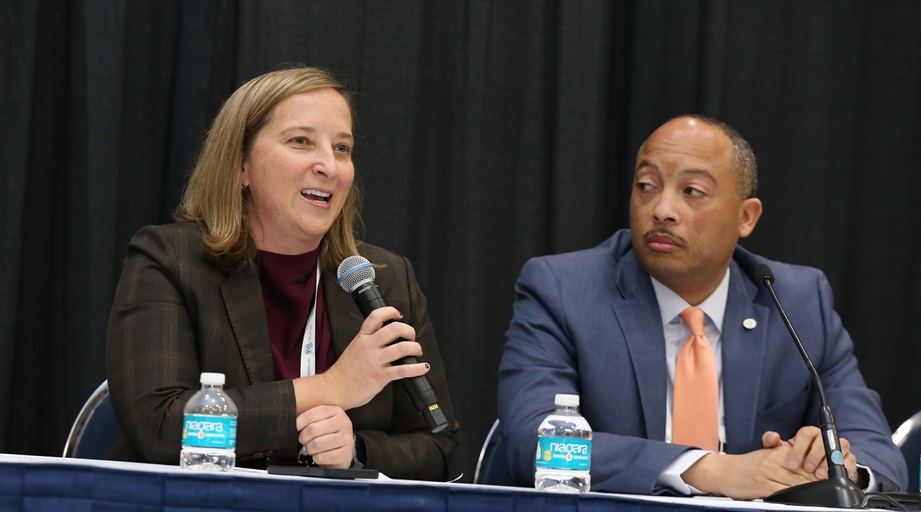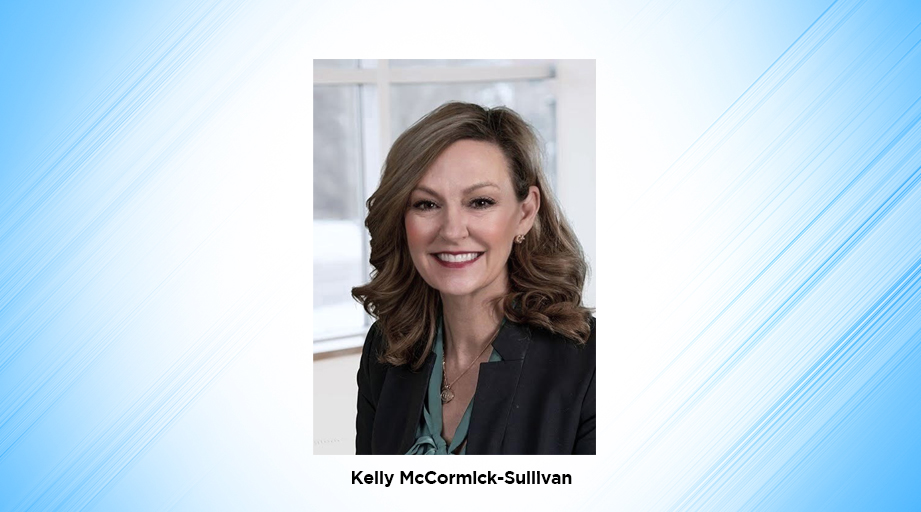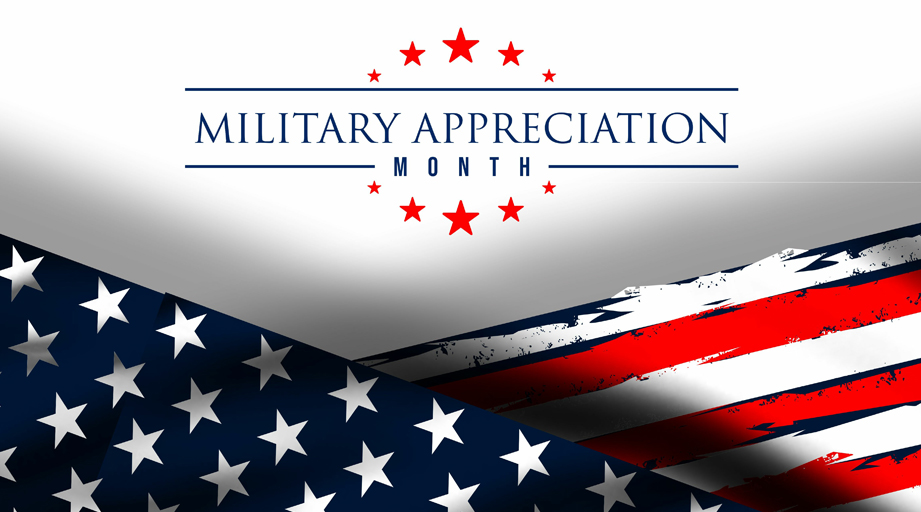
Effective communication, inclusiveness, and humility - those are just a few of the most critical success factors necessary for healthcare leaders to meet changes in the marketplace, advances in technology, and evolving patient care models, according to speakers at Perspectives in Executive Leadership Skills for the Future Demands of Healthcare.
The panel discussion, held Dec. 4 at the Midyear Clinical Meeting & Exhibition, illustrated how pharmacists can engage, influence, and grow in their roles within health systems. Panelists shared their personal leadership journeys to inspire fellow pharmacists to make strategic decisions about their own careers.
Increasingly, ASHP members are ascending to high-level positions as vice presidents, presidents, Chief Operating Officers, and CEOs outside of pharmacy. “ASHP believes that hospital and health-system pharmacy leaders are well positioned to serve as highly effective C-suite executives based on the education and training we receive,” said moderator Tad A. Gomez, president of Loyola University Medical Center.
D. Montez Carter, president and CEO of Trinity Health of New England, spoke of his own progression from a clinical pharmacist in his home state of Mississippi to a pharmacy director to a hospital director. He has been in his current role for about one year, leading an integrated health system encompassing five hospitals, four urgent care centers, and 100 ambulatory care sites in Connecticut and southern Massachusetts.
Carter encouraged pharmacists to take every opportunity to learn something new. “Never think that there’s a role too small … because it’s really about applying your skill sets,” he said.
Trinity Health’s culture priorities are safety, service, quality, and access — reflecting what patients deserve and expect from their healthcare experiences. As a health-system leader, Carter said, you must deliver on such promises in extraordinary ways.For anyone who raises their hand for a leadership role, he recommended “the four Cs”: communication, coaching, conflict management, and change management. Spend most of your time with the first two Cs, Carter advised, and you’ll inevitably lower the need for the other two — and become a more effective leader.
“[Employees] have to want to be under your leadership, they have to want to be part of your team, and they have to want to be part of the organization,” he said.
Wendy Horton, CEO of University of Virginia (UVA) Health University Medical Center, had a winding road to executive leadership, marked at times by the choice to follow her husband’s higher education and career aspirations and at other times by pure serendipity. As an early-career pharmacist, she worked in multiple settings, including retail, a poison center, and inpatient care.
Along the way, Horton welcomed chances to apply her pharmacy skills and training to other disciplines, including a role at University of Wisconsin (UW) Health split between pharmacy and technology assessment. “Little did I know, this was probably the most important piece of my career, because it was my first foray outside of pharmacy,” she recalled.
From that point on, every time opportunity knocked, she decided to answer the call. Horton earned her MBA and took a series of roles further outside of pharmacy, including as director of surgery at UW Health.
She rose to her current position with UVA in March 2020 when the then-CEO stepped down to work on the front lines of the COVID-19 pandemic. UVA Health is home to an academic medical center, a designated cancer center, and a level 1 trauma center, with a collective $4 billion in annual revenue.
Horton praised the business acumen, analytical skills, big-picture perspective, and collaboration it takes to be both a pharmacist and an executive leader. “Being a pharmacy leader is the most important skill set you could possibly have … we really know how to take that and then scale it to other institutions,” she said.
In a dynamic question-and-answer period, Gomez, Carter, and Horton talked about the power of mentorship, ways to keep employees engaged, the importance of making time for family and self-care, and more.
As Carter put it, becoming an executive leader requires you to transition from being a subject-matter expert to building and managing a team of experts. All panelists expressed pride in being pharmacists and in their ability to pay it forward for the profession.
The session, developed in partnership with the American College of Healthcare Executives, counted toward recertification for ASHP’s Certified Pharmacy Executive LeaderSM (CPEL) credential.







